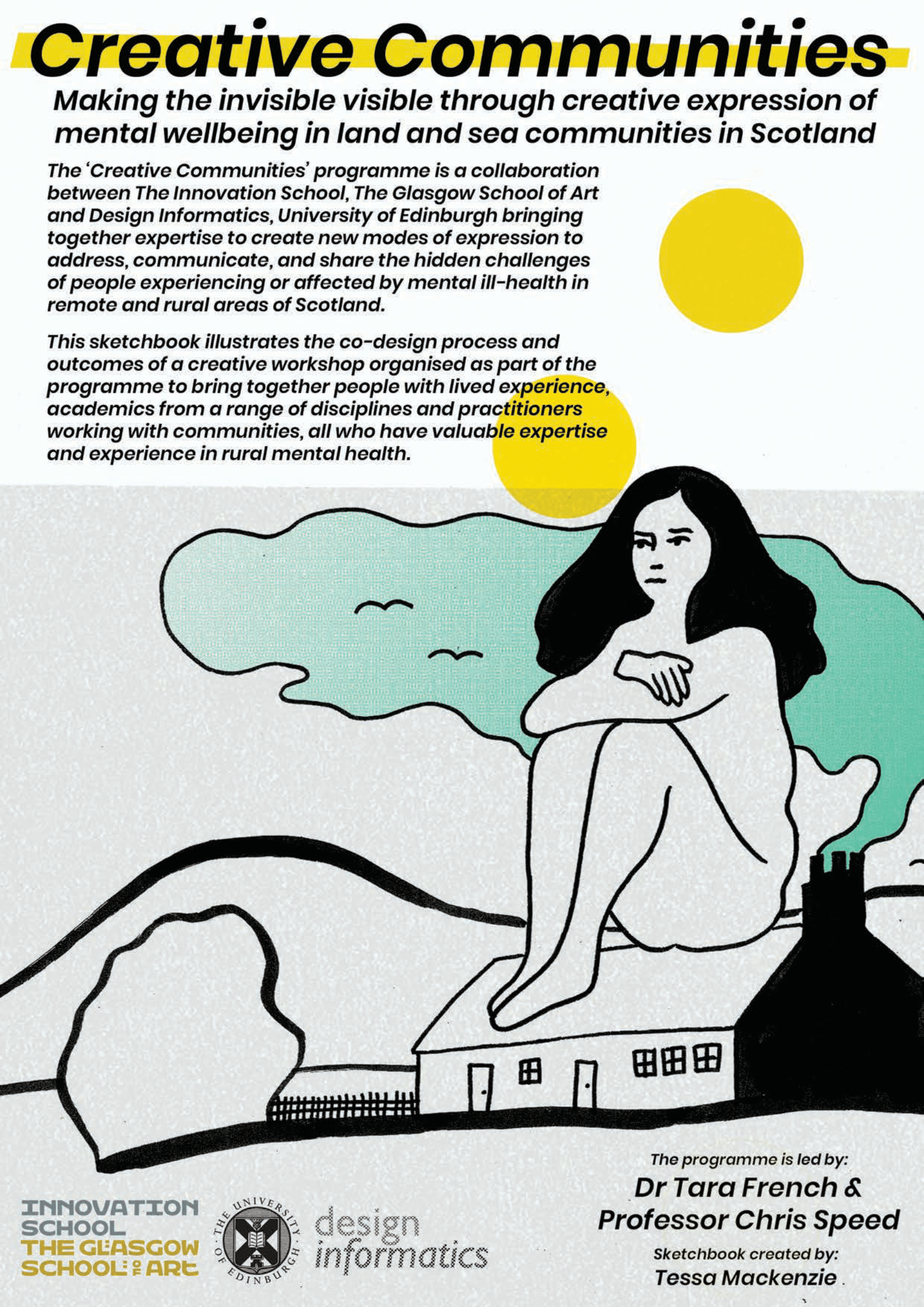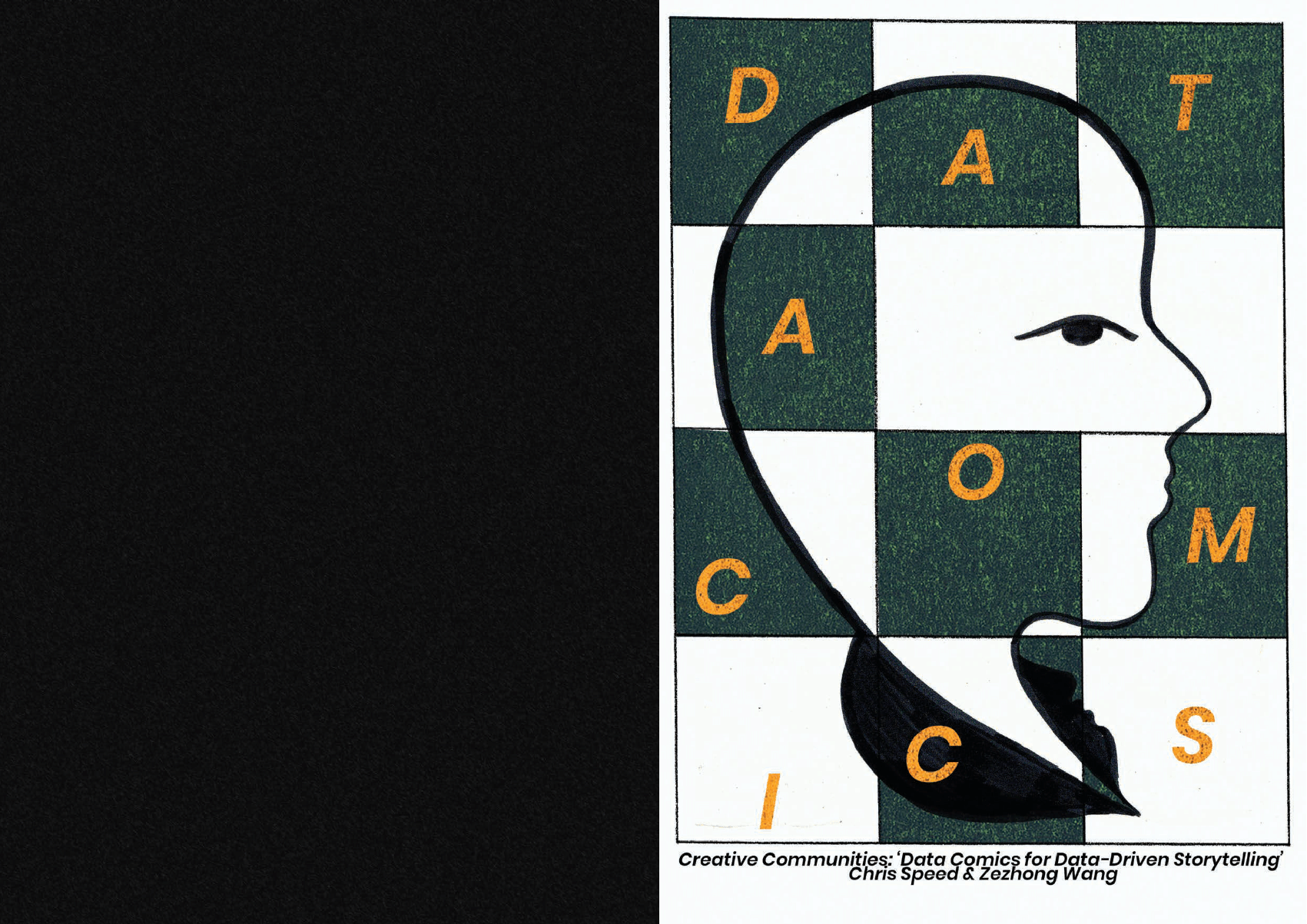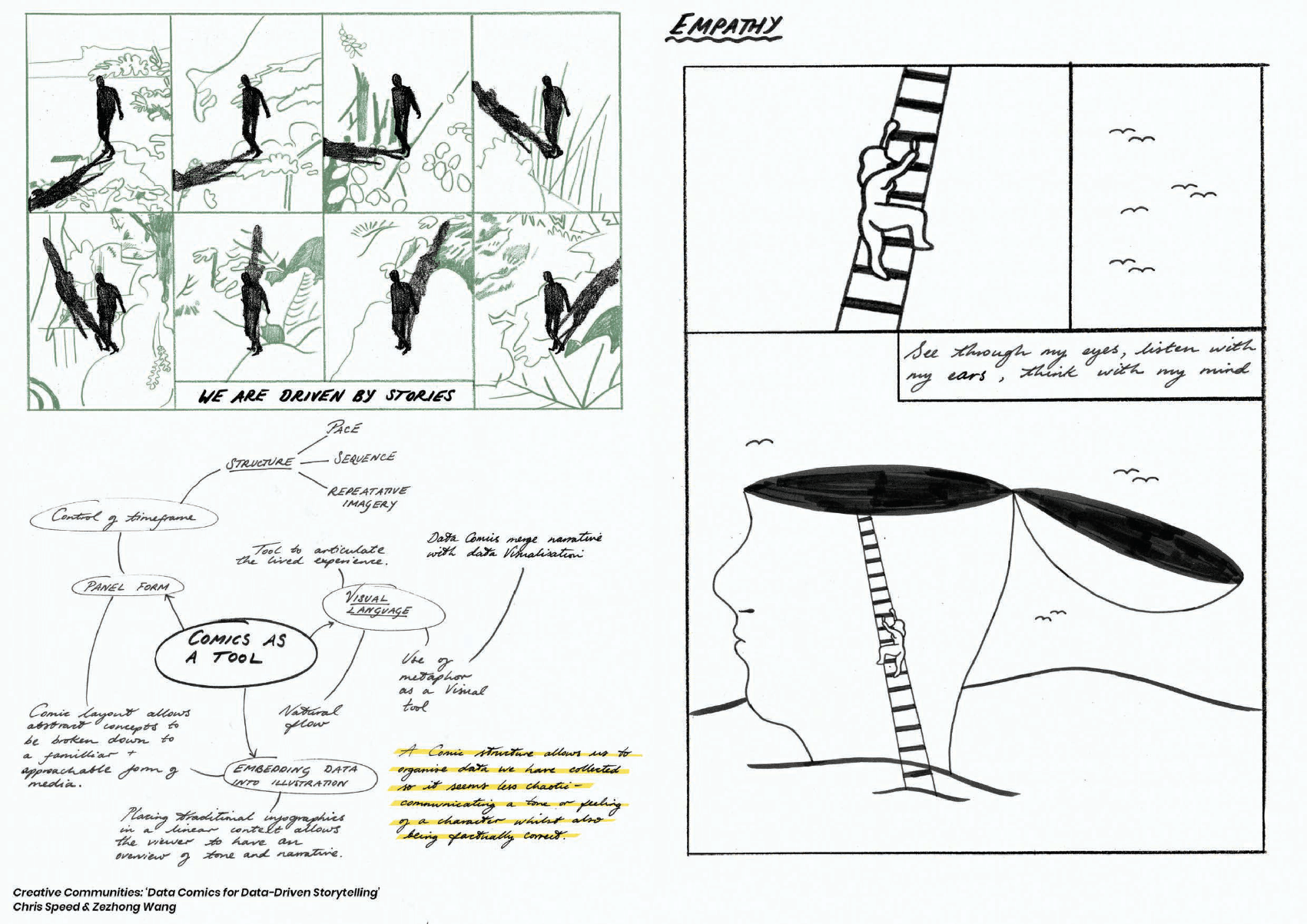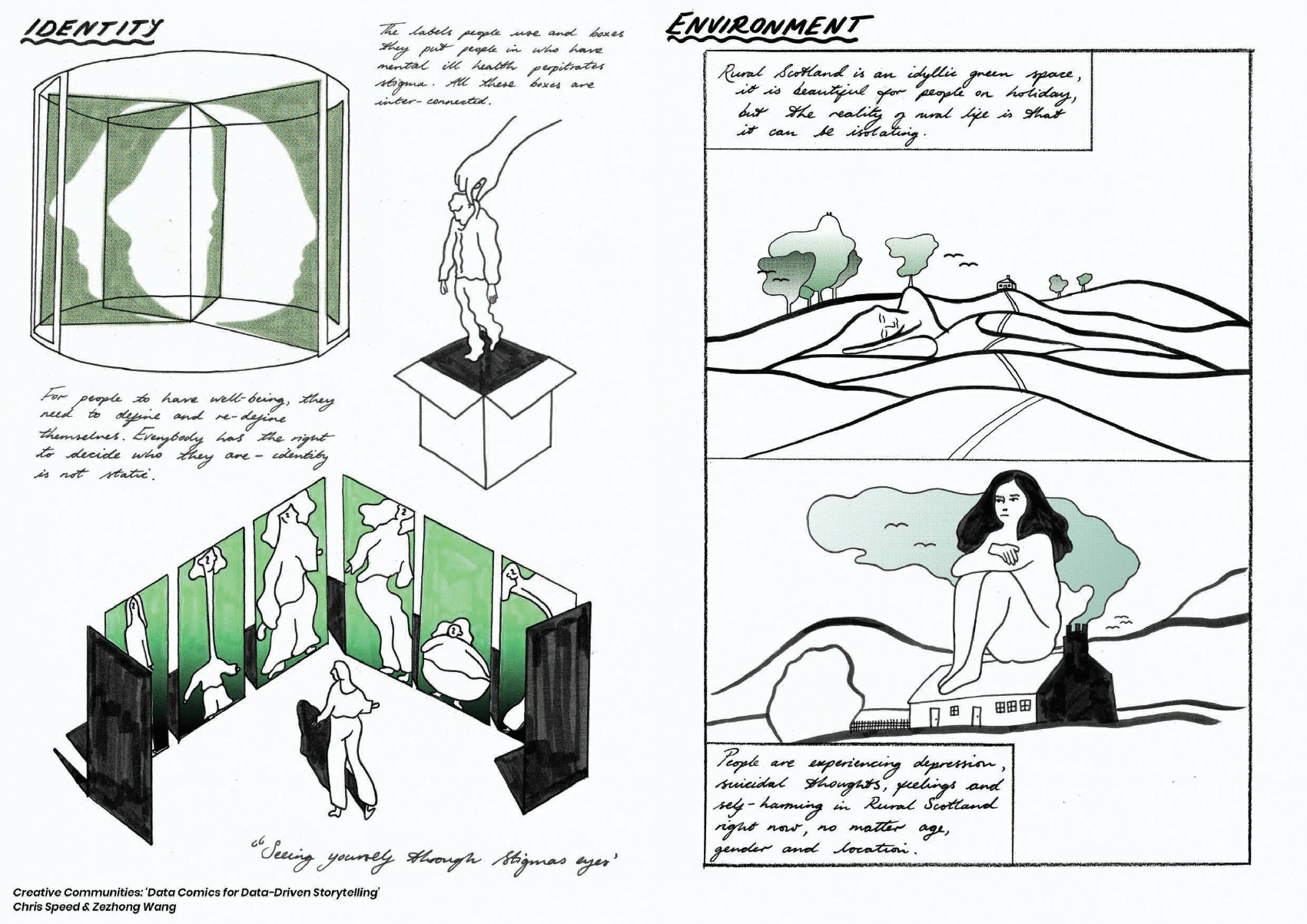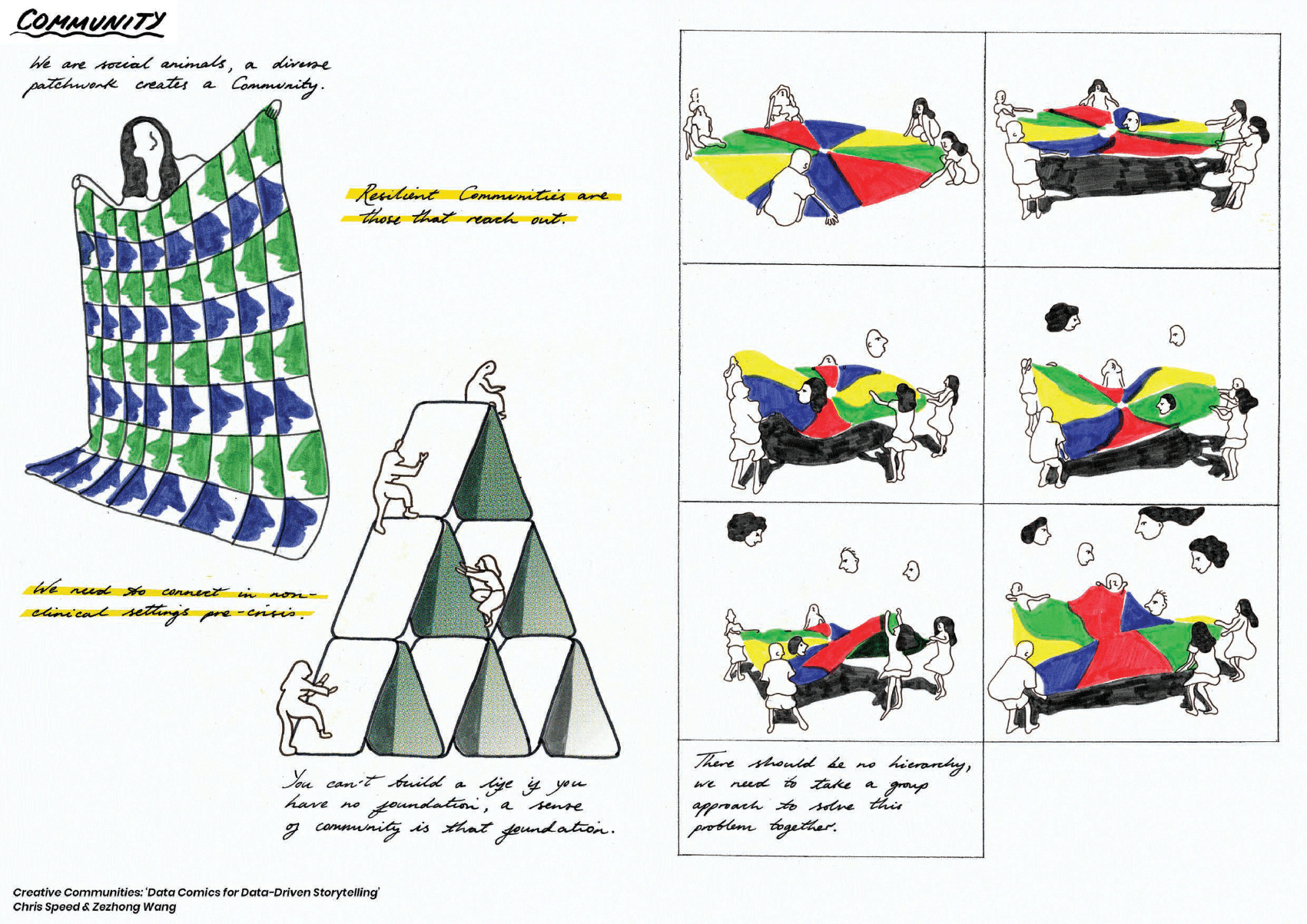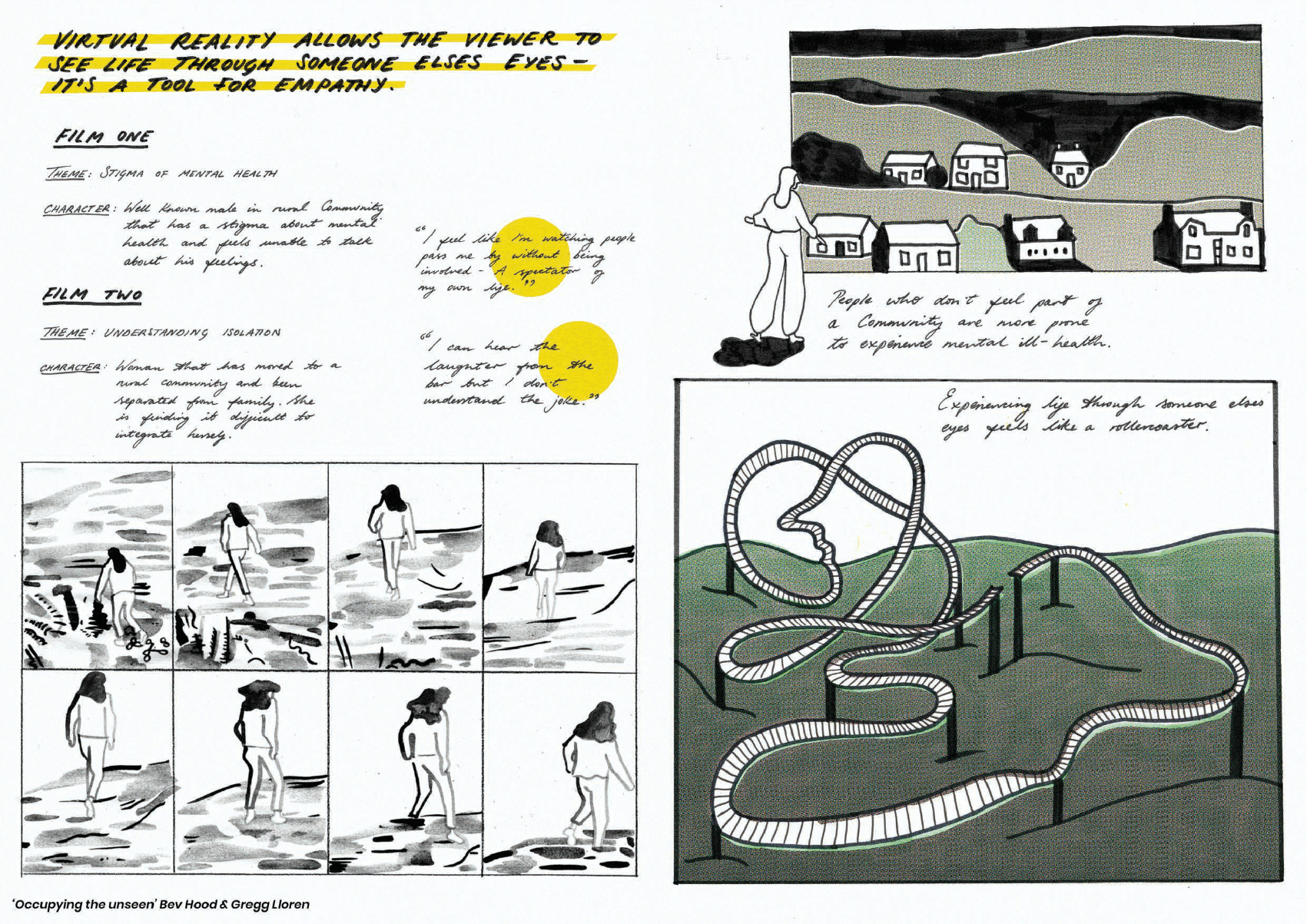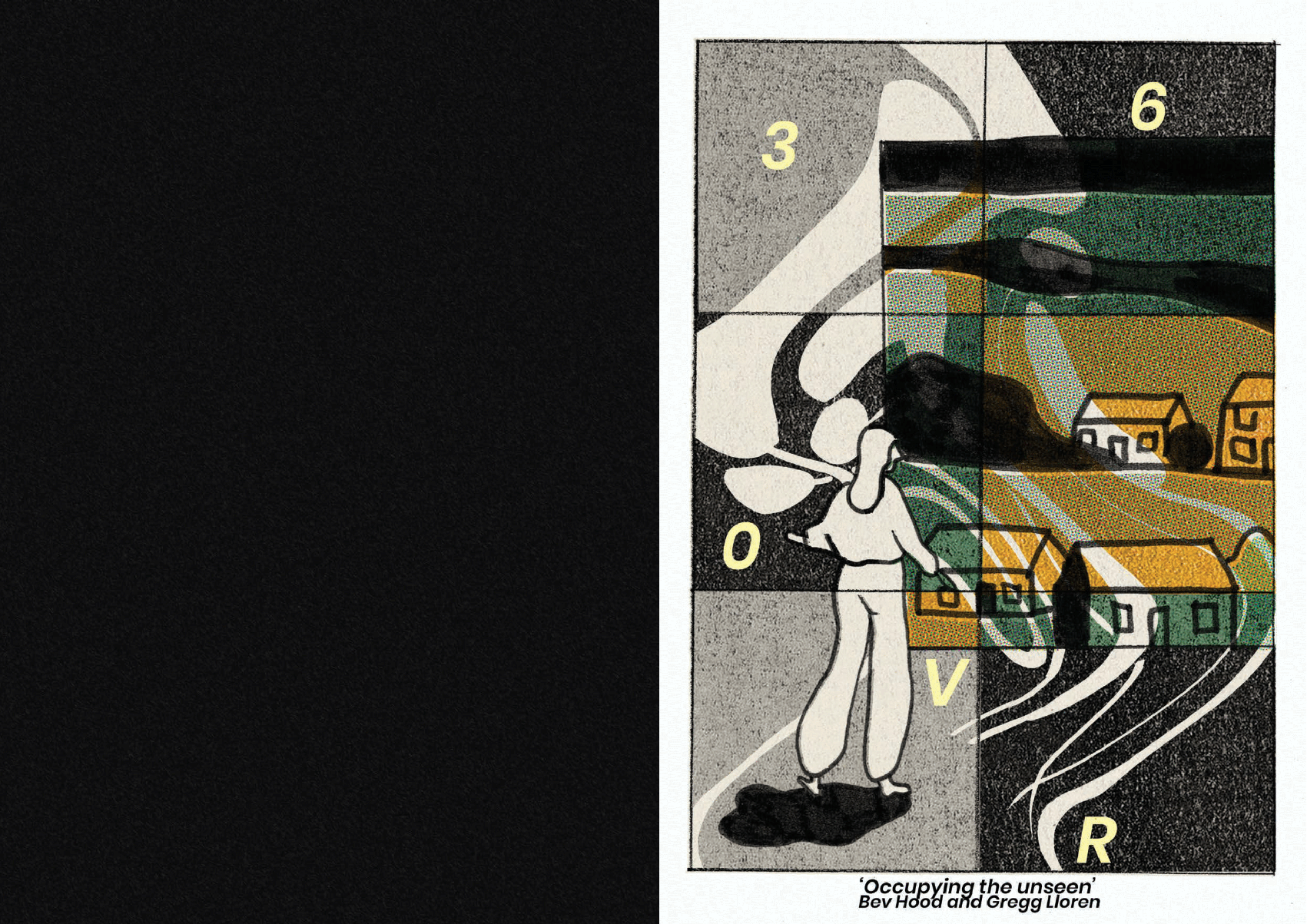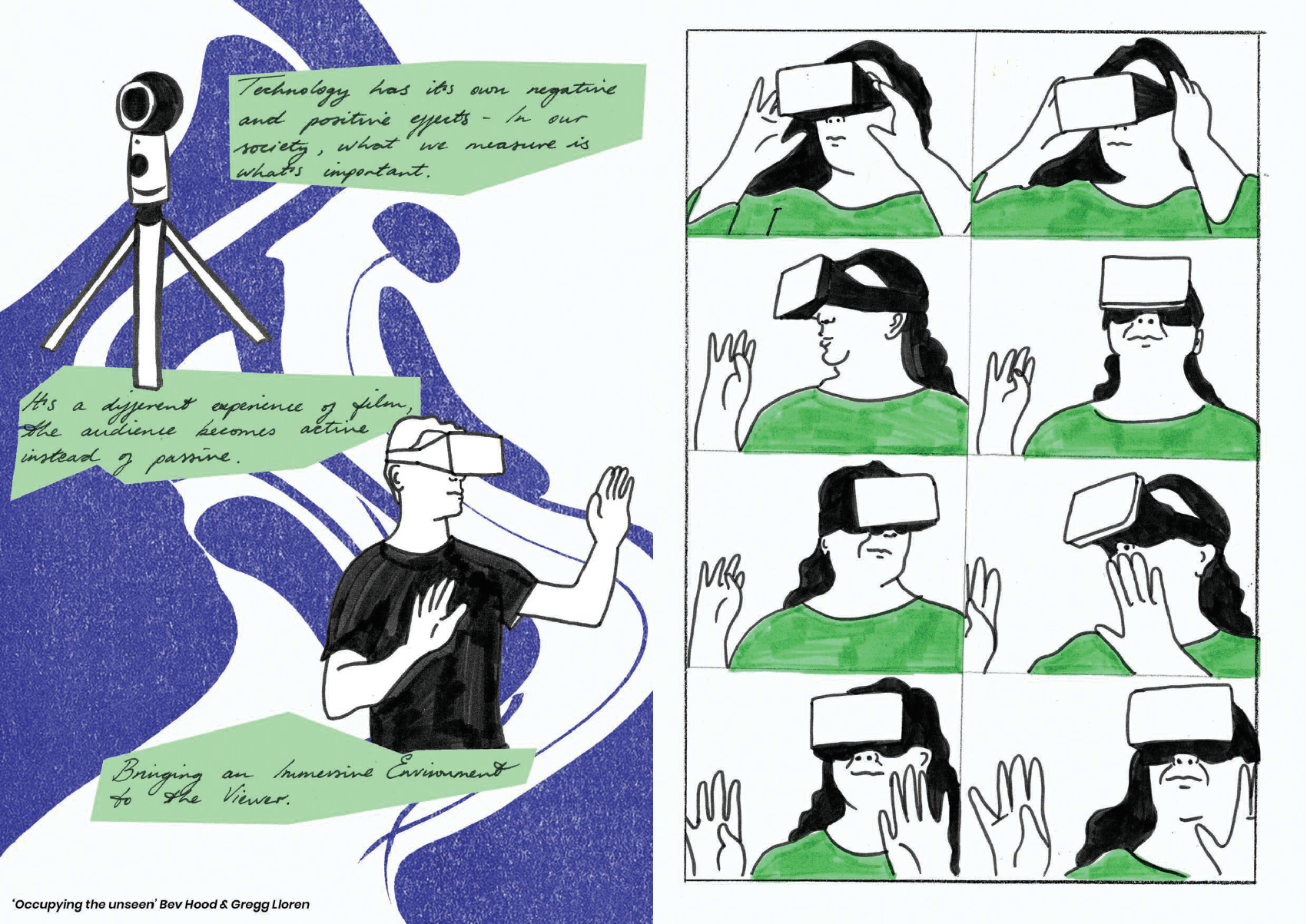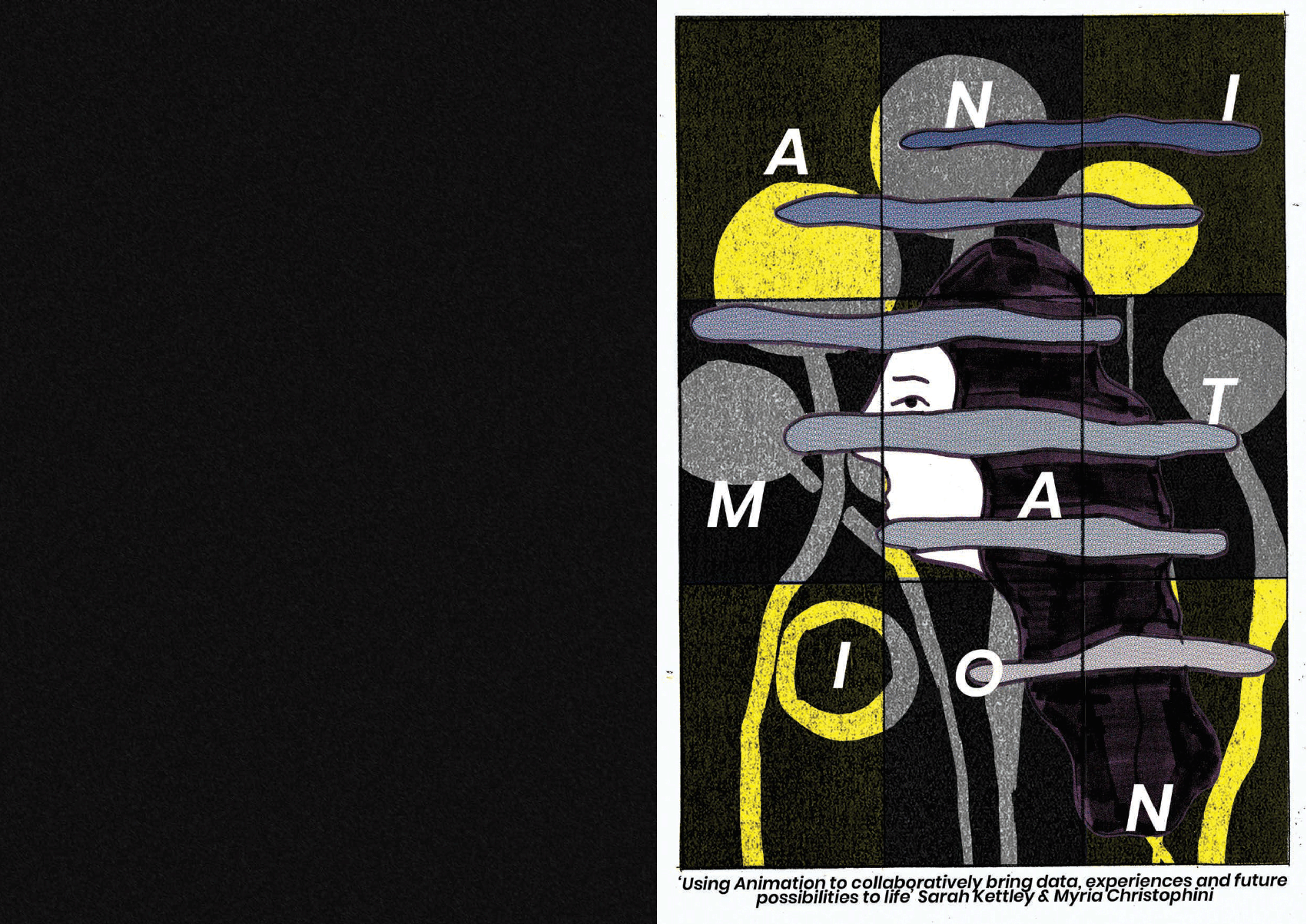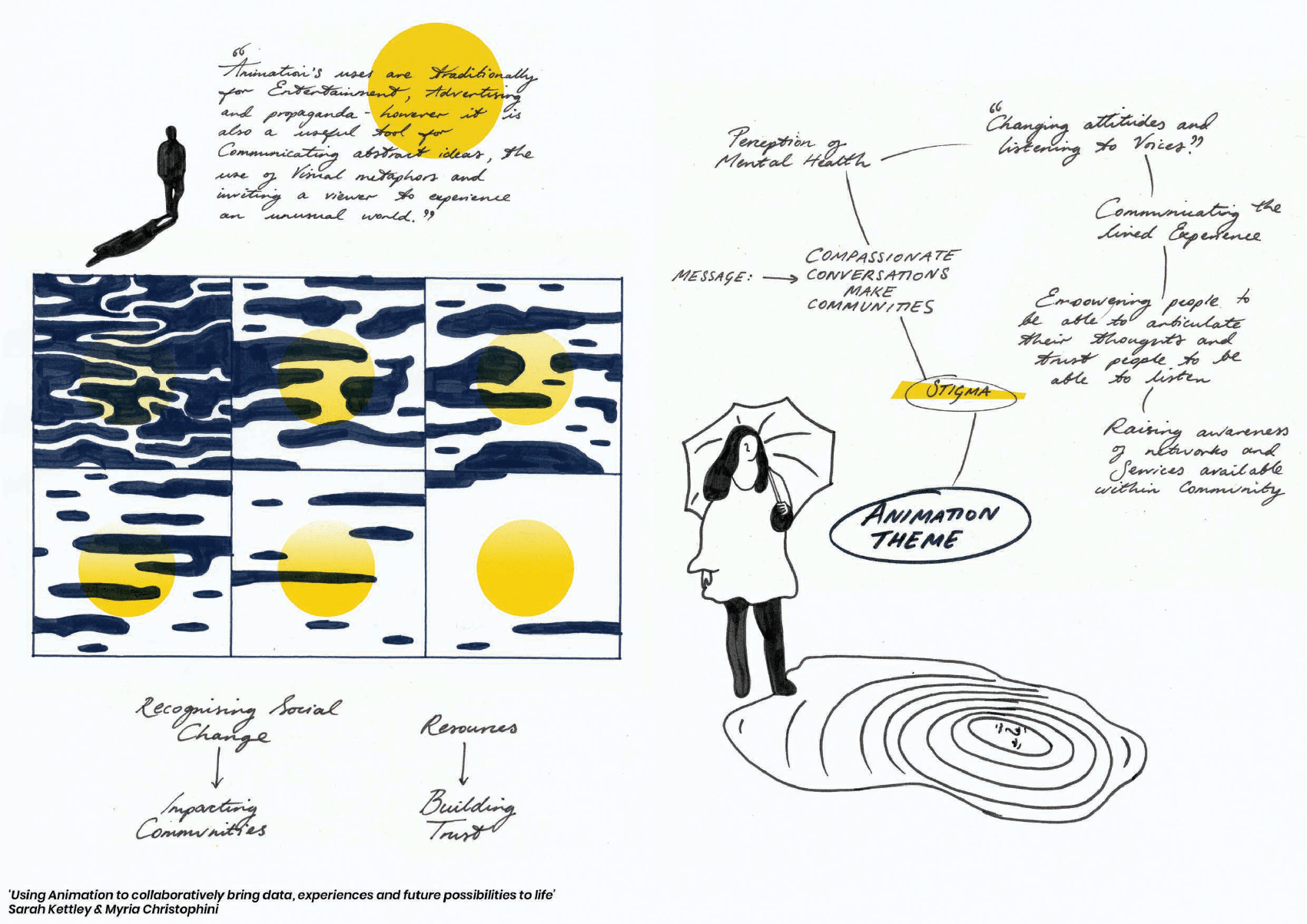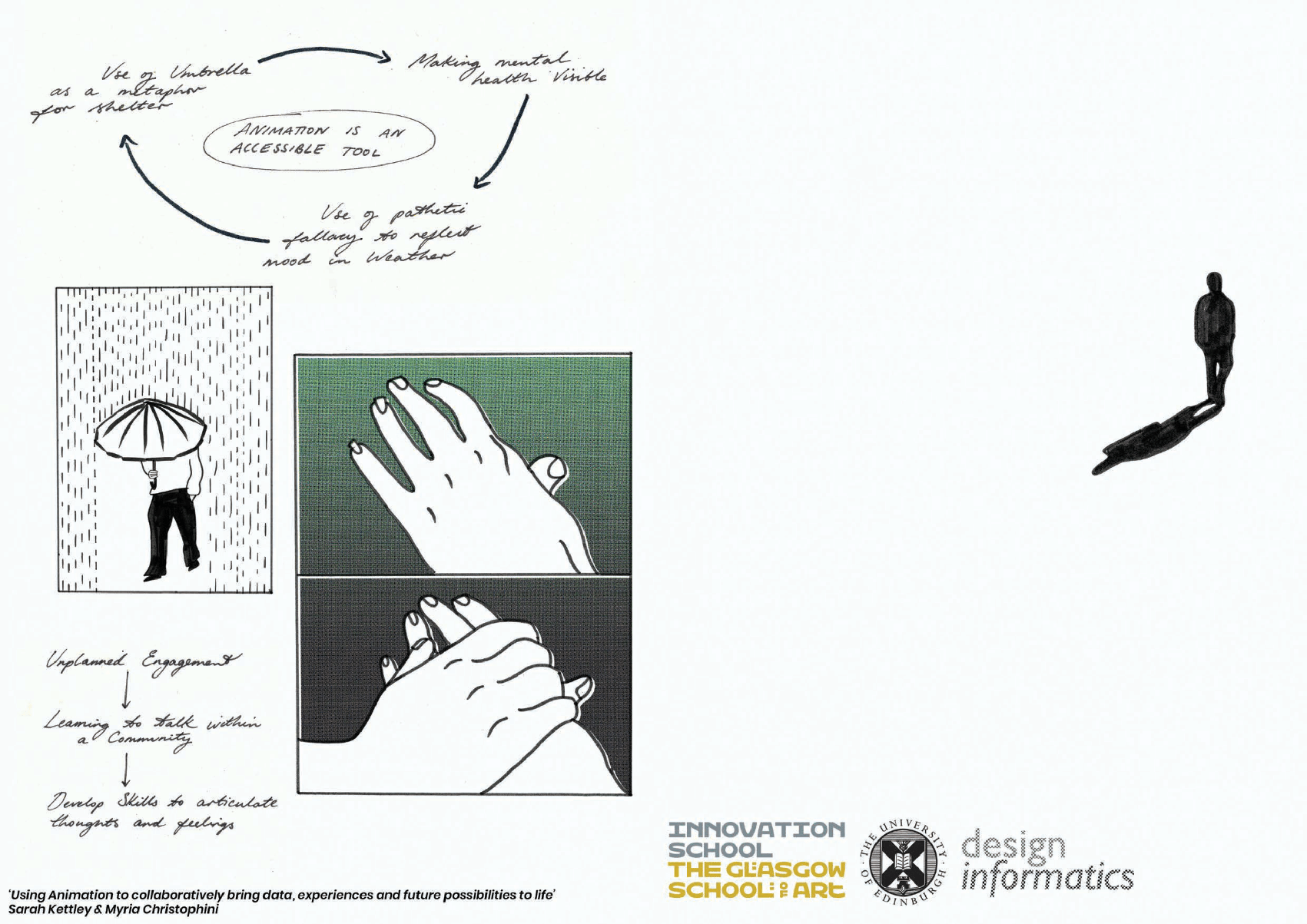Creative communities
Making the invisible visible through creative expression of mental wellbeing in land and sea communities in Scotland
Background
Funded by the Scottish Universities Insight Institute (SUII), the programme embraced a transdisciplinary approach using design complexity to create new modes of expression to address, communicate, and share the hidden challenges of people experiencing or affected by mental ill-health in remote and rural areas of Scotland, spanning from land-based to maritime communities. Bringing together the expertise of The Innovation School, The Glasgow School of Art and Design Informatics, Edinburgh College of Art, the programme is grounded in evidence-based research and an assets-based approach to address three overlapping elements:
Image Credit: Mafalda Moreira
‘Creative Communities’ aimed to understand and explore ways in which the resilience of rural communities and the wellbeing of individuals can be enhanced if mental health issues were expressed, shared and addressed more widely. Lived experience was placed at the core of the programme, enabling ‘voice’ and visibility around the challenges in rural communities.
Using an evolved ‘Flourish’ process (applied in previous SUII funded programmes) that is enhanced through Complexity Design and perspectives from several disciplines, ‘Creative Communities’ resulted in a range of co-created expressive outcomes that begin to make visible the experiences of rural mental health and wellbeing.
Programme aims
Through generating evidence and insight based on transdisciplinary collaboration that is grounded in people’s lived experience, and articulations of that experience, the programme had the following key objectives:
To give voice and visibility to ‘invisible communities’ to ‘reposition’ perceptions, overcome stigma, isolation, and prejudice of rural mental health.
To explore new approaches to supporting and promoting mental wellbeing among rural communities.
To propose new, creative and meaningful communicative pathways in which:
Individuals’ wellbeing can be enhanced if mental health issues were expressed, shared, and addressed more widely;
Rural communities can be made more resilient
To contribute to the national conversation on rural mental health in Scotland and the Mental Health Strategy actions with new insights and questions to drive the rural mental health research agenda (nationally and internationally).
Methodology
The Innovation School’s Flourish process (McAra-MCWilliam et al., 2014) has been successfully applied within a number of previously funded SUII projects and has offered a way to intensively, but creatively engage programme participants towards co-creating impactful outcomes over the course of the short project period. The process is thus one of small and multiple inputs but is evidenced and recognised as producing highly engaging, actionable and impactful outputs. ‘Creative Communities’ evolved and developed the Flourish process to shift beyond knowledge exchange into a space where knowledge was co-created among participants in the programme. The methodology supported groups of participants and programme team members to engage in an immersive and intensive exploration of specific areas of rural mental health. This evolved format provided the opportunity to combine multiple disciplinary perspectives with lived experience in various contexts (and communities).
Creative Seminar
The creative seminar aimed to mobilise knowledge among the programme team and participants towards building a collective contextual understanding of rural mental wellbeing among ‘invisible communities’.
Seminar participants were supported share insights, experiences and expertise around rural mental health and wellbeing, and the notion of ‘invisible communities’. The discussion was visually captured to demonstrate the complexity and thematic areas related to these topics.
A visual canvas was created to allow participants to collaboratively map the current research, policy and practices of rural mental health and wellbeing for invisible communities. The canvas also provided space for participants to capture ideas and areas for further exploration and research.
Participants were provided with stickers to prioritise three thematic areas of focus for the ‘flurries’ to inform the co-design workshop.
The seminar concluded with discussion around the focus, aims, objectives and structure of activities for the co-design workshop.
Co-design Workshop
A co-design workshop was organised at The Glasgow School of Art Highlands and Islands campus to take forward the findings from the creative seminar and explore creative modes of expressing rural mental health and wellbeing.
The workshop aimed to explore the ways in which rural mental health can be expressed in different forms in order to build a compelling and valued evidence base.
The key objectives of the workshop were to:
Bring together a range of stakeholders and representatives from rural communities to explore themes related to rural mental wellbeing.
Explore novel ways of reorganising and expressing data to meaningfully impact policy, practice and research to improve rural mental wellbeing.
Curate knowledge in its broadest sense and explore interpretations of knowledge through creative practices.
Create a compelling case that rural mental health matters.
The workshop design was informed by the co-design expertise of The Innovation School and the visual and digital output creation expertise of Design Informatics. The workshop was organised around three ‘flurries’ providing different modes of creative expression through which to explore rural mental health and wellbeing.
Flurry #1 involved writing short first person narratives about mental health in rural areas that voice the invisible narratives hidden within existing data. These narratives were recorded as short spoken word sound pieces. 360degrees video footage of the rural area around Forres was filmed and combined with the sound pieces to create short immersive films, with the aim of stimulating empathy in viewers.
Flurry #2 involved creating data comics for data-driven storytelling inspired by the visual language of comics to communicate insights in data through visualizations. While comics are widely known, data comics offer an accessible and tangible form to turn data sets into illustrated stories that articulate the challenges of well being in rural settings.
Flurry #3 involved using animation to collaboratively bring data, experiences and future possibilities to life where participants were supported to develop a short story and animate it, with the potential to add sound.
Participants selected which track they wished to join but were encouraged to have a mix of perspectives and expertise in each group.
Sharing experiences and ideas
Group facilitators supported the sharing of experiences, conversations and exploration around rural mental health and wellbeing through the use of thematic topic cards which were informed by the themes that emerged during the Creative Seminar. The cards supported discussion in the groups before deciding collectively which area of rural mental health and wellbeing would be the focus for the creative expression.
Storyboard and persona templates were also created to guide the development of the creative expression to think about the setting, characters, key messages and begin to build up a story. Creative, craft and prototyping materials were also provided to support thinking through making to develop the creative expressions.
Refining and showcasing creative expressions
The second day of the workshop allowed participants to refine their idea and work towards presenting the key elements and prototypes of their creative expression to the wider group. Participants were given postcards to capture feedback on each of the group’s creative expression around what they felt was a strength of the idea and what would they add to the idea.
Sharing workshop reflections
A brief reflective discussion was then facilitated to capture ideas for how we can make sure these ideas have impact and any changes at national, regional and local levels. Participants were also invited to reflect on participating in the workshop.
OUTCOMES
A visual sketchbook was created to document the co-design workshop and summarise the discussion and emerging themes in each of the ‘Flurries’.
Flurry #1 ‘Occupying the unseen’
Led by Beverley Hood & Gregg Lloren
Participants were firstly asked to introduce themselves and what led them to participate in the workshop. Theme cards were used to further explore participants experiences of mental health with discussion focused around: stigma where a lack of anonymity and fear of judgement by others meant people were waiting until crisis point before seeking help; rurality where access of services, transport and boundaries (eg different health board areas) were seen as challenges and exacerbated mental health issues; community as either geographic or interest and providing support within these; and resilience with an increasing focus on individual resilience having potential negative impact due to perceived stigma of not being resilient – compounding stigma. There was also a question of ‘How do we get to resilience?’ leading to the idea of exploring mental health as a journey.
To help the group get in the mindset of using the spoken word to communicate an experience participants were given 2 minutes to write about the journey of traveling to the workshop that morning which worked well in highlighting differences in styles, character and feeling, and the pieces did not need to be written well to communicate their story.
The group then moved on to think about the narrative they wanted to communicate and divided into two smaller groups to explore different perspectives of similar themes. Each group then did a series of short, 2 minute focused sessions thinking about: who is the person; where is the person and what are their circumstances; what happened; and their journey.
These activities were also supported by storyboard and persona templates.
Flurry #2 ‘Data Comics for data-driven storytelling’
Led by Chris Speed & Zezhong Wang
Data comics for data-driven storytelling are inspired by the visual language of comics and aim to communicate insights in data through visualizations. While comics are widely known, data comics offer an accessible and tangible form to turn data sets into illustrated stories that articulate the challenges of well being in rural settings.
Participants worked in groups to create two data comics.
The ‘What ingredients make you, you?’ comic was developed using the insights from the workshop and supported with data from Highland Pride, combined with data from Stonewall and the Scottish Equalities Network.
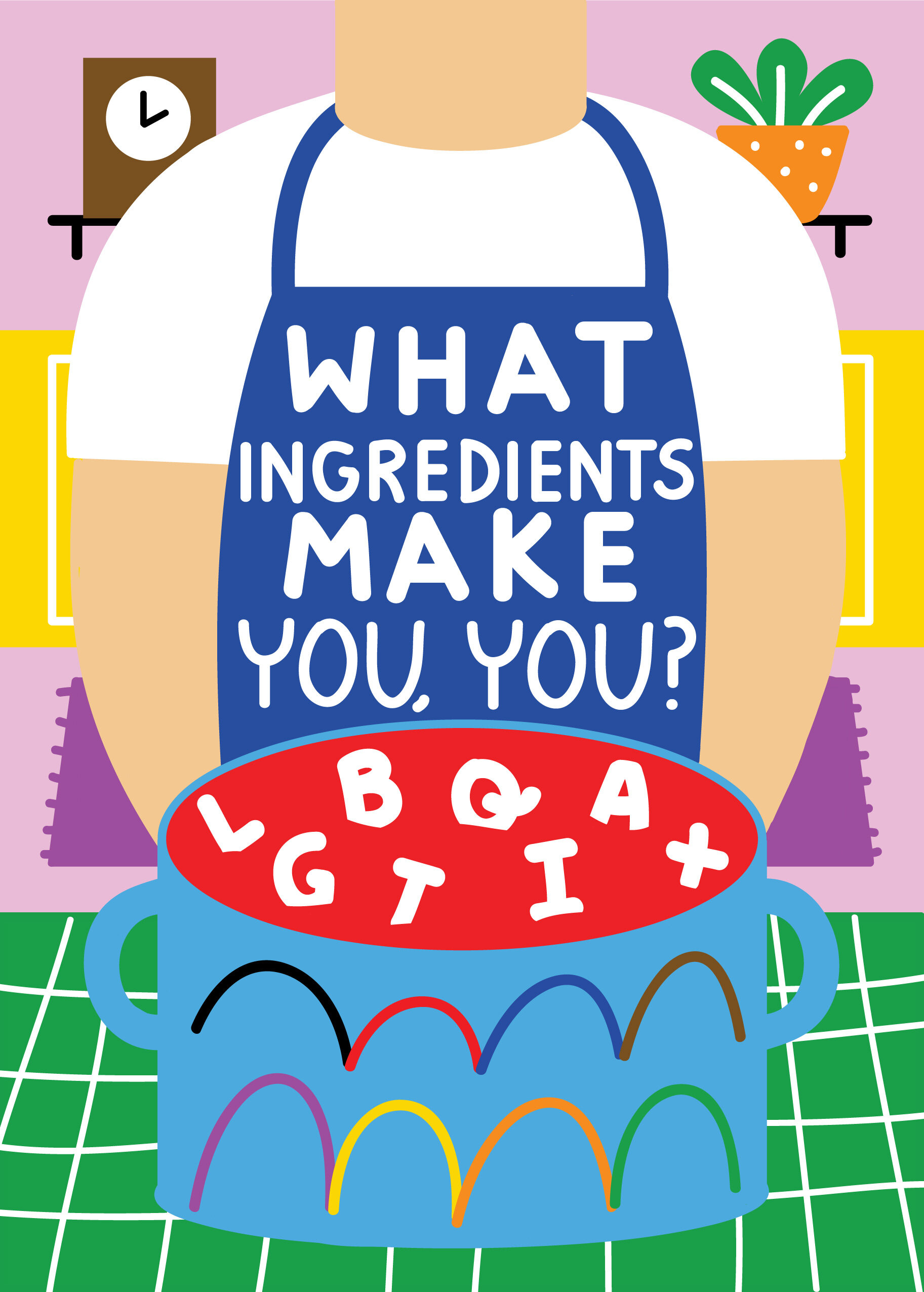
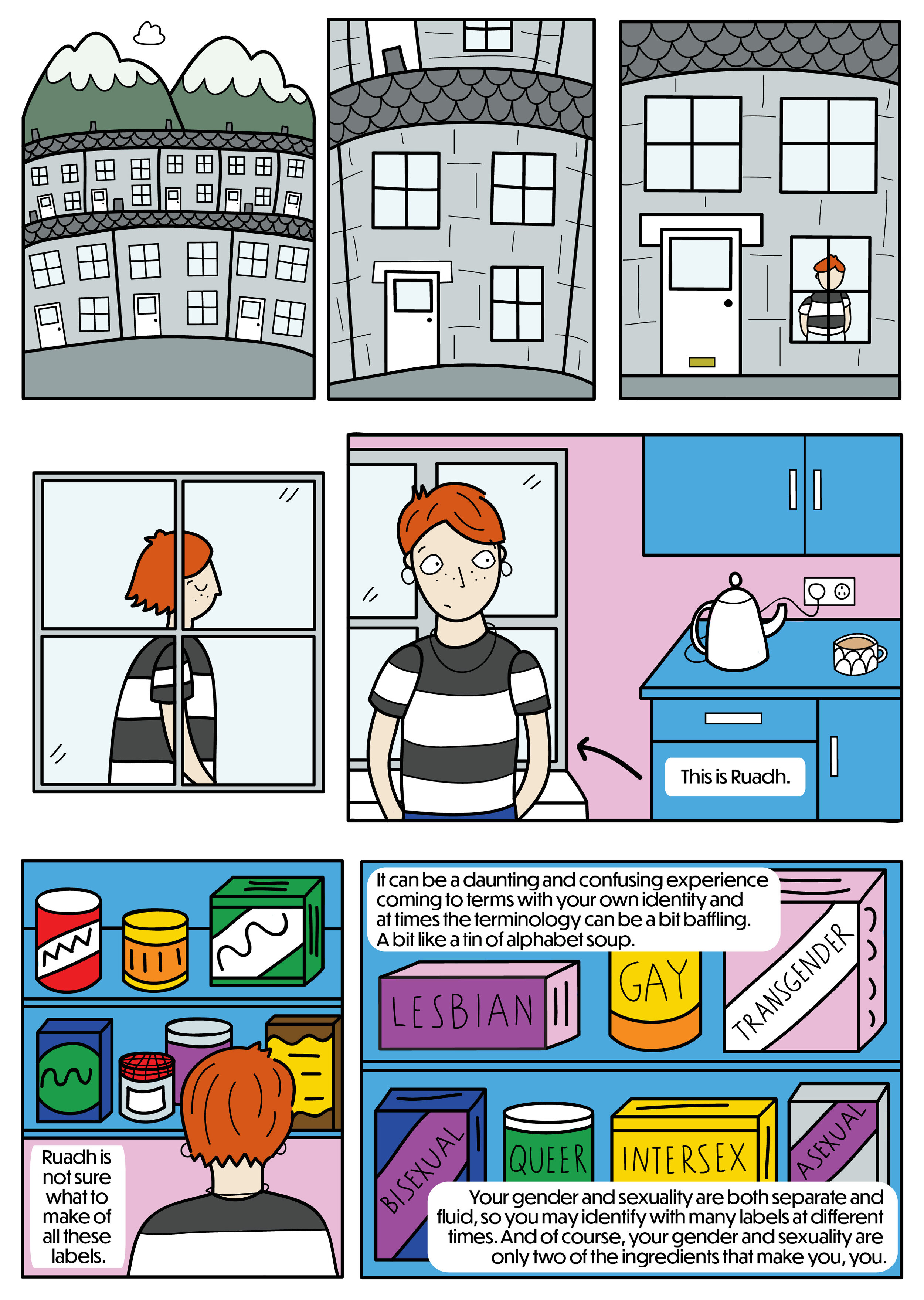
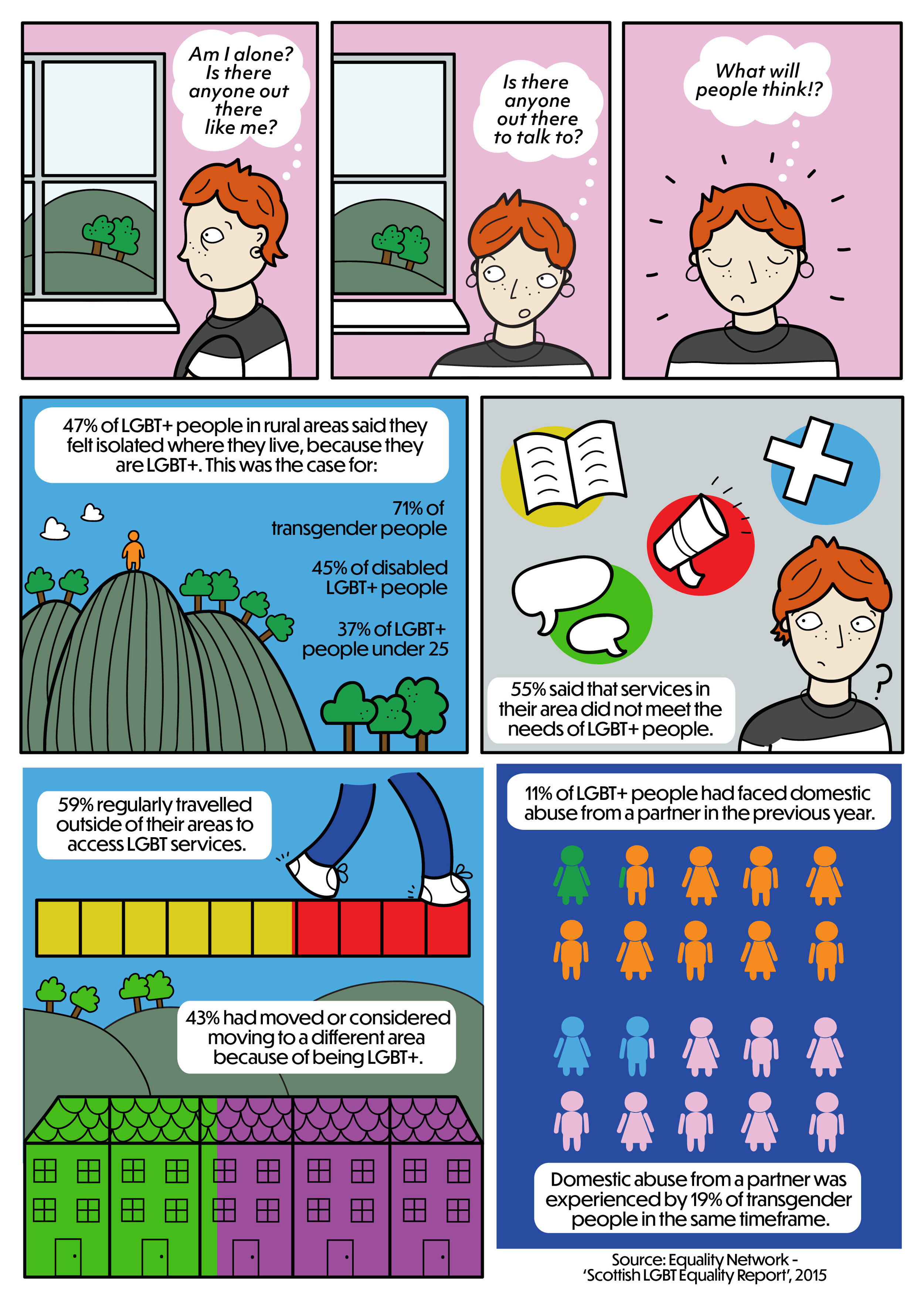
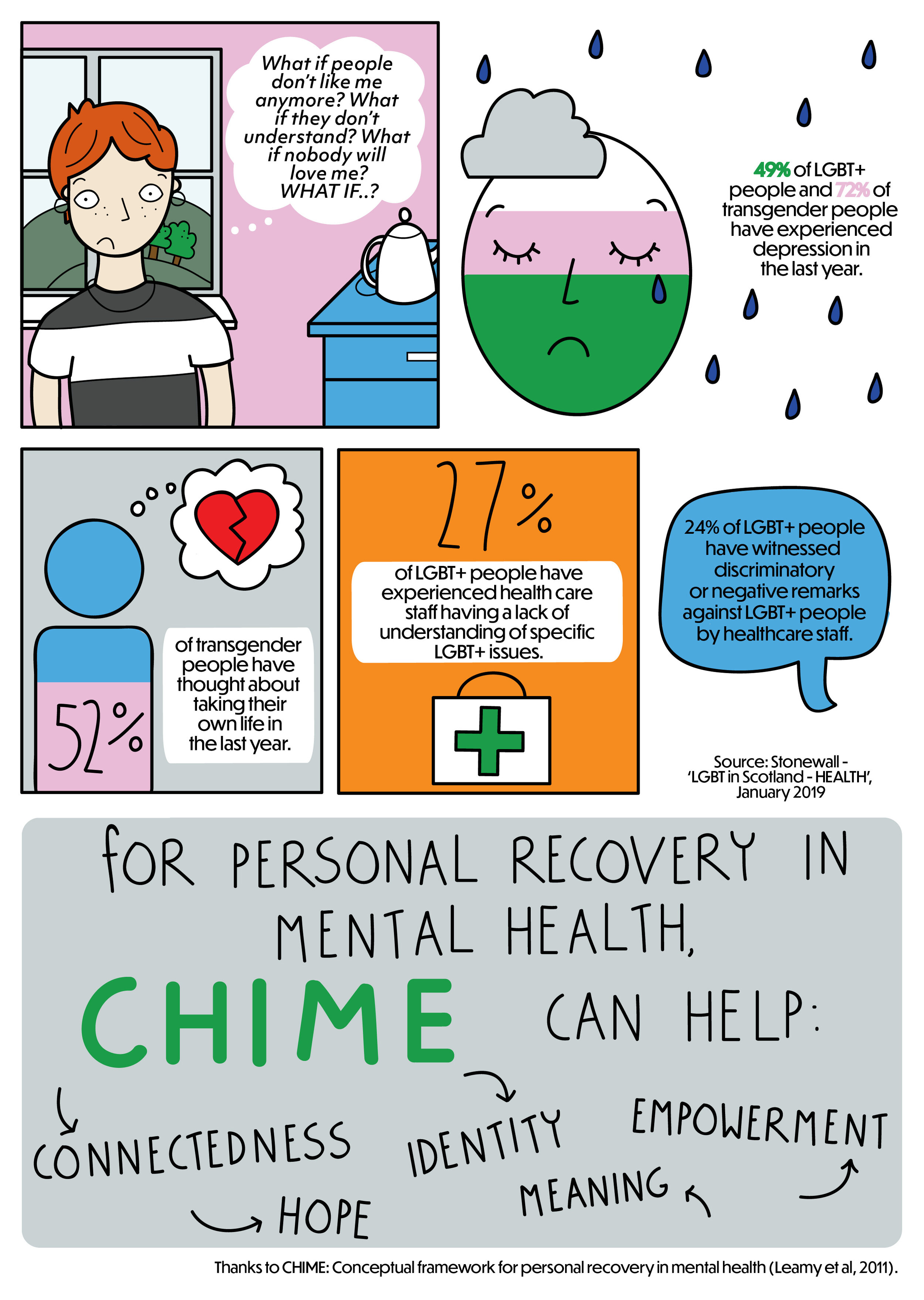
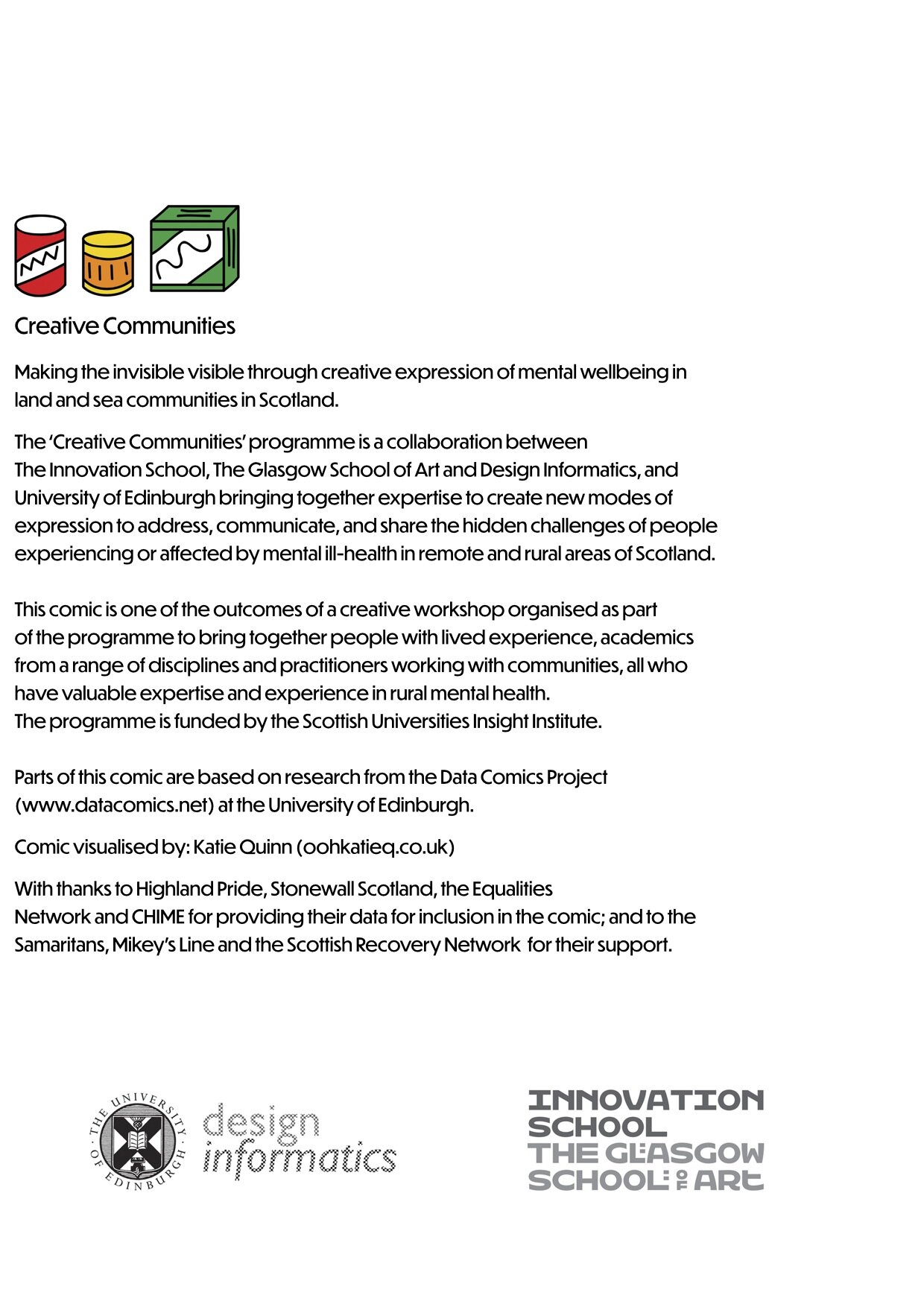
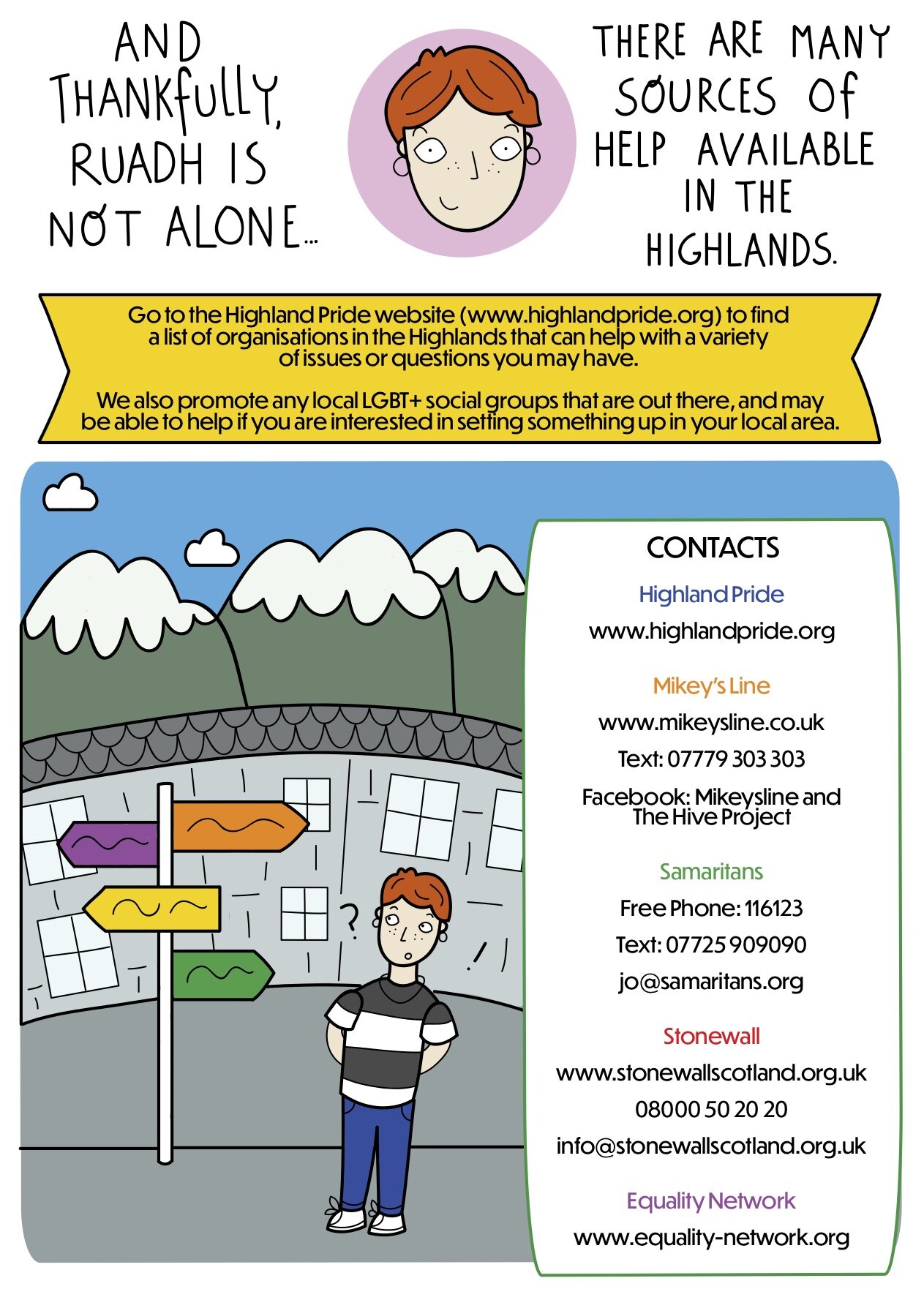
Flurry #3 ‘Using Animation to collaboratively bring data, experiences and future possibilities to life’
Led by Myria Christophini & Sarah Kettley
Workshop participants were supported to develop a short story and create an animation - ‘Compassionate conversations make communities’. Participants worked together to create the story, design the props and produce the animation. The workshop introduced participants to the use of animation production and illustrated the many opportunities it provides for a variety of artistic expression and teamwork.
impact
The outcomes of the workshop will be launched in early 2020. The front cover of the data comic ‘What ingredients make you, you?’ was produced as a leaflet and was distributed at the Proud Ness event (July 2019), Belladrum Festival (August, 2019) and was shared at freshers fairs across the Highlands.
acknowledgements
We would like to thank everyone involved across the programme for sharing their ideas, insight, experience and bringing their creativity and energy to all the outputs created. We are also grateful to the Scottish Universities Insight Institute for supporting this programme.
For more information contact:
Dr Tara French | t.french@gsa.ac.uk
Prof Chris Speed | c.speed@eca.ac.uk




